Research data management
👩💻👨💻
with DataLad
Adina Wagner @AdinaKrik @AdinaKrik
|
Michał Szczepanik |
|
|
Psychoinformatics lab,
Institute of Neuroscience and Medicine (INM-7) Research Center Jülich |
Slides: https://github.com/datalad-handbook/course/
welcome!
A few logistical things first:- An approximate schedule for today is on our companion workshop website.
- Feel free to take collaborative, public notes at etherpad.wikimedia.org/p/RDM_with_DataLad. You can also use this pad for anonymous questions.
- We are using a JupyterHub. You should have received credentials in advance via email - if not, please raise your hand!
- Find the workshop contents (and more) at psychoinformatics-de.github.io/rdm-course/
- Let us introduce the workshop organizers...
- Some guidelines for the virtual workshop venue...
- Please mute yourself when you don't speak
- Make use of the "Raise hand" feature
- Drop out and re-join as you please
- Adhere to the code of conduct
Questions/interaction throughout the workshop
- If you have a question during a lecture, please first type your questions in the chat. There are no stupid questions :)
- It would be great to have lively discussions - unless its interrupting others, please feel encouraged to unmute/turn on your video to interact with us.
- We're happy to discuss specific use cases at the end. Please make a note about them in the "Shared notes"
Questions/interaction after the workshop
-
If you have a question after the workshop, you can reach out for help:
- Reach out to to the DataLad team via
- Matrix (free, decentralized communication app, no app needed). We run a weekly Zoom office hour (Thursday, 4pm Berlin time) from this room as well.
- the development repository on GitHub
- Reach out to the user community with
- A question on neurostars.org
with a
dataladtag - Find more user tutorials or workshop recordings
- On DataLad's YouTube channel
- In the DataLad Handbook
- In the DataLad RDM course
- In the Official API documentation
Resources and Further Reading
|
Comprehensive user documentation in the DataLad Handbook (handbook.datalad.org) |
|
|
|
|
|
|
Overview of most tutorials, talks, videos, ... at github.com/datalad/tutorials
Live polling system
Please use your phone to scan to QR code, or open the link in a new browser windowWhat's your mood today?

What's your level of excitement?

Video recordings
The recording would be edited or stopped to exclude certain or all discussions.This poll is unanimous - only if everyone votes "yes" the workshop will be recorded
What will we do today?
- The workshop centers around DataLad (version 0.16)
- We aim to do more than a standard introduction by providing in-depth explanations, hands-on exercises, and discussions throughout the workshop
-
(Help us by asking any question that comes up!)

Motivation
Common problems in science
You write a paper about an algorithm, stay up
late to generate good-looking figures, but you have to tweak parameters and
display options to make it work AND look good. The next morning, you have no
idea which parameters produced which figures, and which of the figures
fits to what you report in the paper.

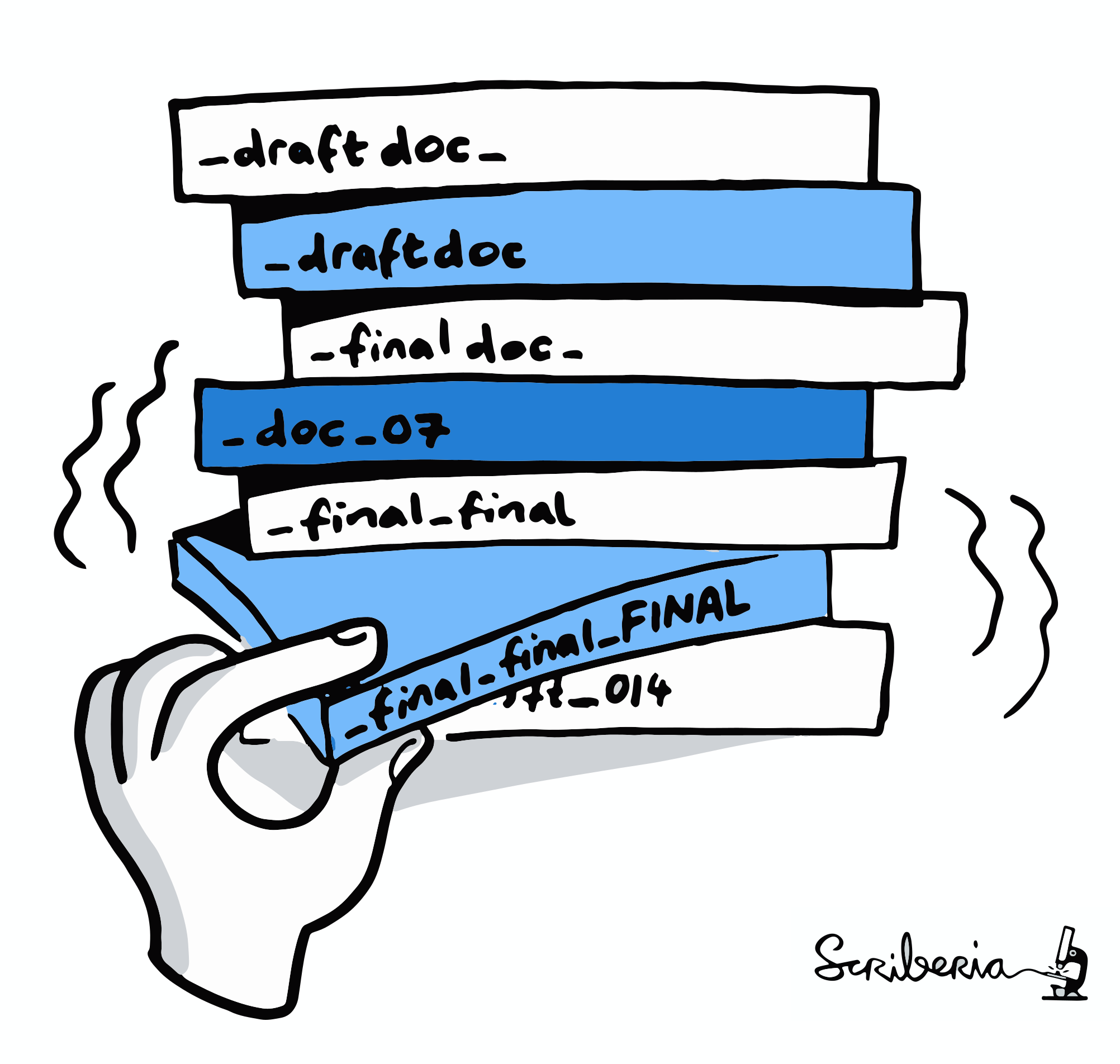
Illustration adapted from Scriberia and The Turing Way
https://co.pinterest.com/pin/551128073121451139//imgcredit>
http://phdcomics.com/comics.php?f=1693
http://phdcomics.com/comics.php?f=1693
http://phdcomics.com/comics.php?f=1693

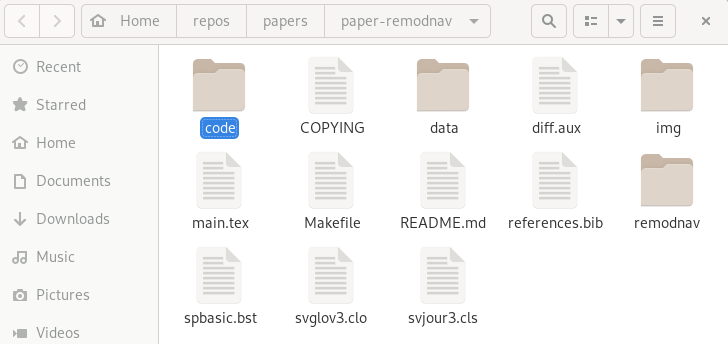
 File viewer and terminal view of a DataLad dataset
File viewer and terminal view of a DataLad dataset






Apart from local computing infrastructure (from private laptops to computational clusters), datasets can be hosted in major third party repository hosting and cloud storage services. More info: Chapter on Third party infrastructure.
Let's fire up a terminal and get started with the Basics


Common problems in science
Your research project produces phenomenal results, but your laptop,
the only place that stores the source code for the results, is
stolen/breaks


Common problems in science
A graduate student approaches their supervisor, complaining that the
supervisors research idea does not work. After weeks of discussion,
it becomes apparent that oral communication doesn't suffice - the
student can't sufficiently explain the environment (data, algorithms,
...) they constructed, and if the supervisor can't enter and use the
students project there's no way to find a fix.
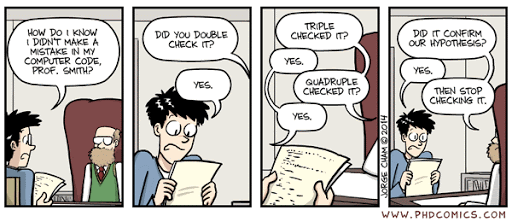

Common problems in science
A Post-doc wrote a script during the PhD that applied a specific
method to a dataset. Now, with new data and a new project, they
try to reuse the script, but forgot how it worked.


common problems in science
You try to recreate results from another lab's published paper.
You base your re-implementation on everything reported in their paper,
but the results you obtain look nowhere like the original.
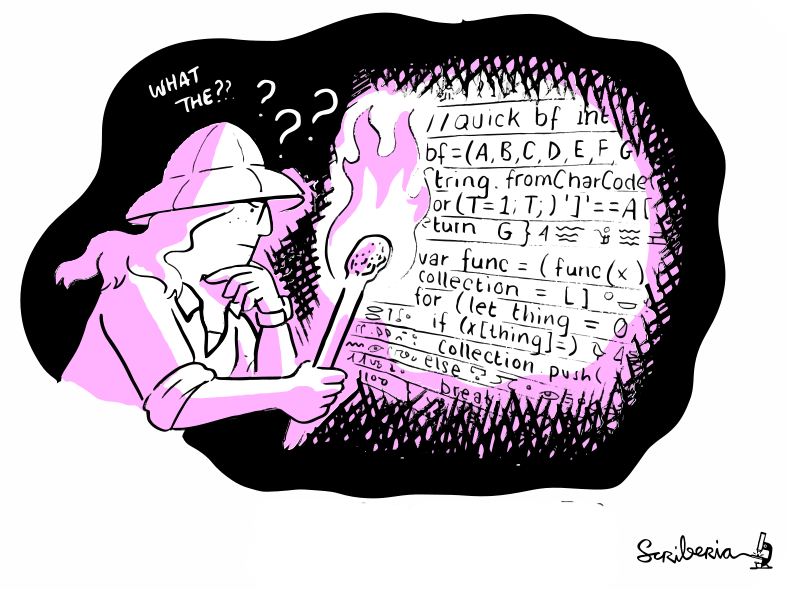

common old problems in science
All these problems were paraphrased from
Buckheit & Donoho, 1995
Let's do better!
- A command-line tool, available for all major operating systems (Linux, macOS/OSX, Windows), MIT-licensed
- Build on top of Git and Git-annex
- Allows...
- ... version-controlling arbitrarily large content
- version control data and software alongside to code!
- ... transport mechanisms for sharing and obtaining data
- consume and collaborate on data (analyses) like software
- ... (computationally) reproducible data analysis
- Track and share provenance of all digital objects
- ... and much more
- Completely domain-agnostic
Acknowledgements
|
Funders
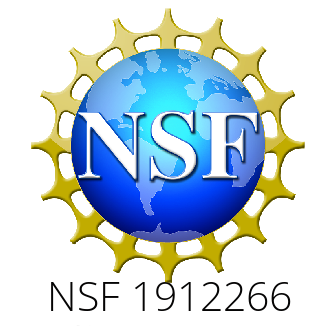




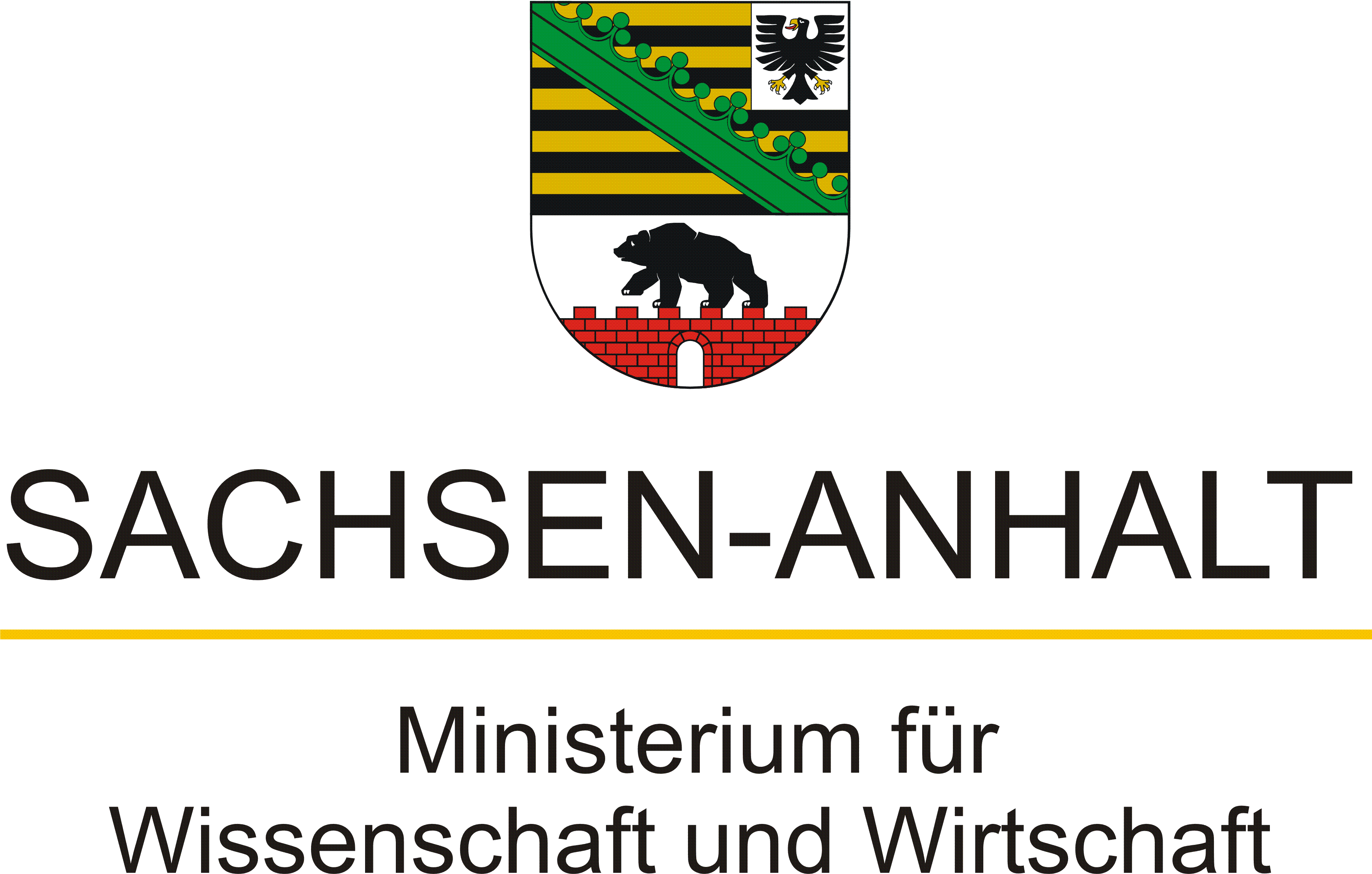
Collaborators


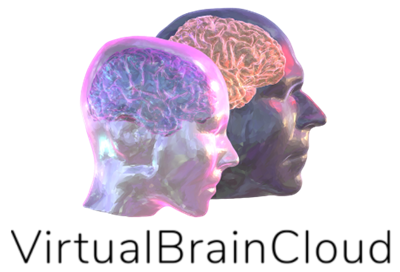
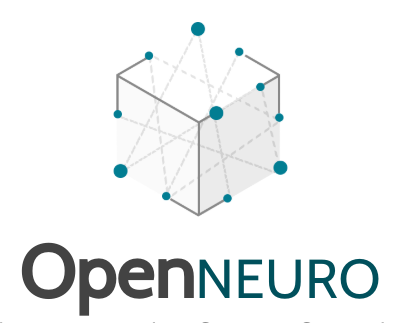
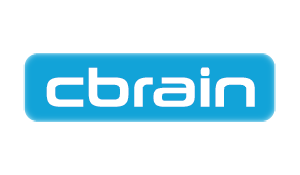
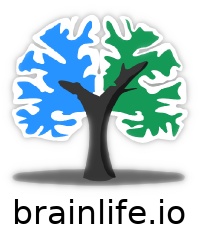
|
Core concepts & features
Everything happens in DataLad datasets
Dataset = Git/git-annex repository
- content agnostic
- no custom data structures
- complete decentralization
- Looks and feels like a directory on your computer:

 File viewer and terminal view of a DataLad dataset
File viewer and terminal view of a DataLad dataset
version control arbitrarily large files
- Non-complex DataLad core API (easy for data management novices)
- Pure Git or git-annex commands (for regular Git or git-annex users, or to use specific functionality)
Stay flexible:
Use a datasets' history

- reset your dataset (or subset of it) to a previous state,
- revert changes or bring them back,
- find out what was done when, how, why, and by whom
- Identify precise versions: Use data in the most recent version, or the one from 2018, or...
Consume and collaborate
machine-readable, re-executable provenance
Seamless nesting and dataset linkage
Third party integrations
Apart from local computing infrastructure (from private laptops to computational clusters), datasets can be hosted in major third party repository hosting and cloud storage services. More info: Chapter on Third party infrastructure.
Examples of what DataLad can be used for:
- Behind-the-scenes infrastructure component for data transport and versioning (e.g., used by OpenNeuro, brainlife.io , the Canadian Open Neuroscience Platform (CONP), CBRAIN)
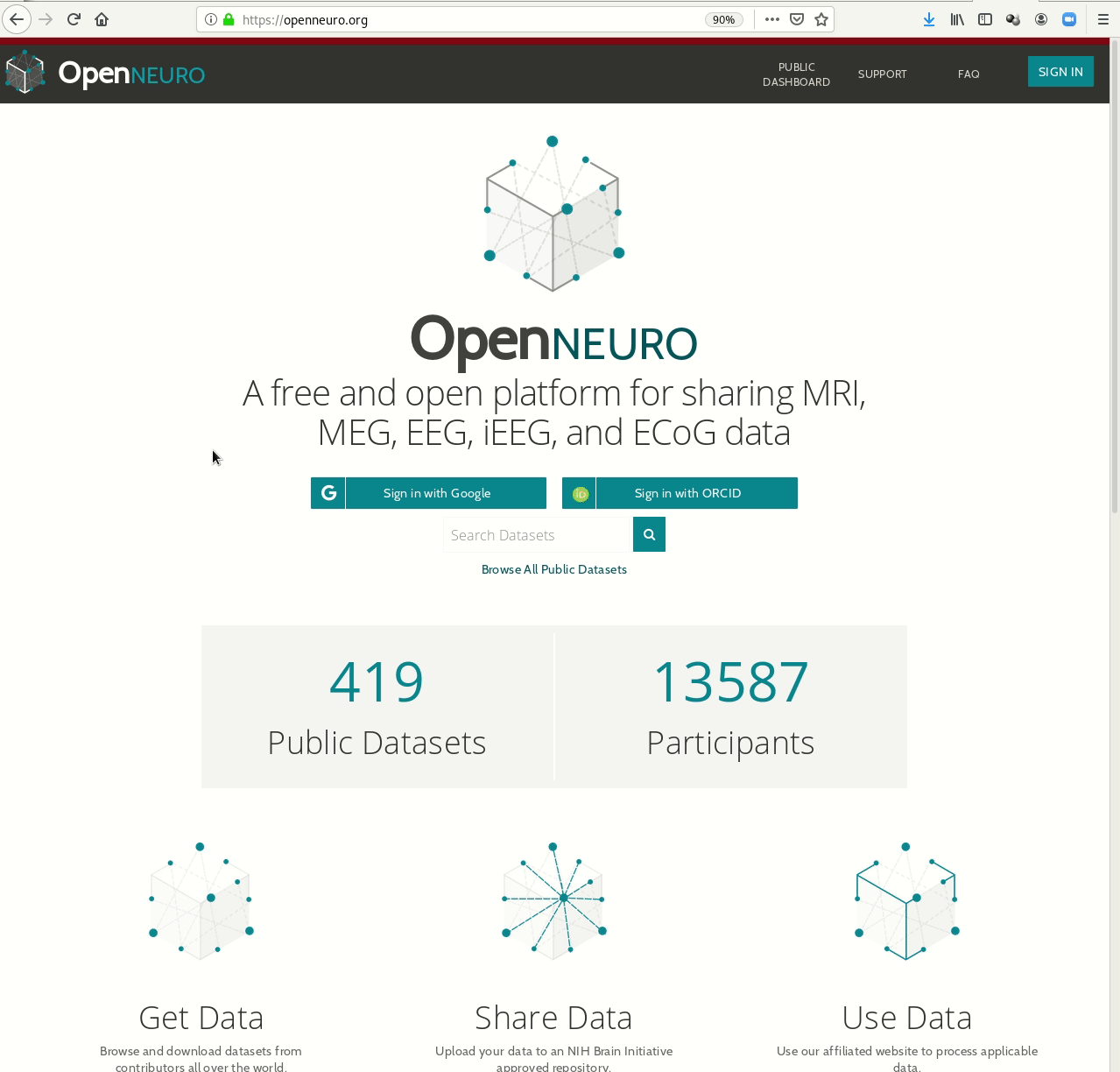
Examples of what DataLad can be used for:
- Creating and sharing reproducible, open science: Sharing data, software, code, and provenance
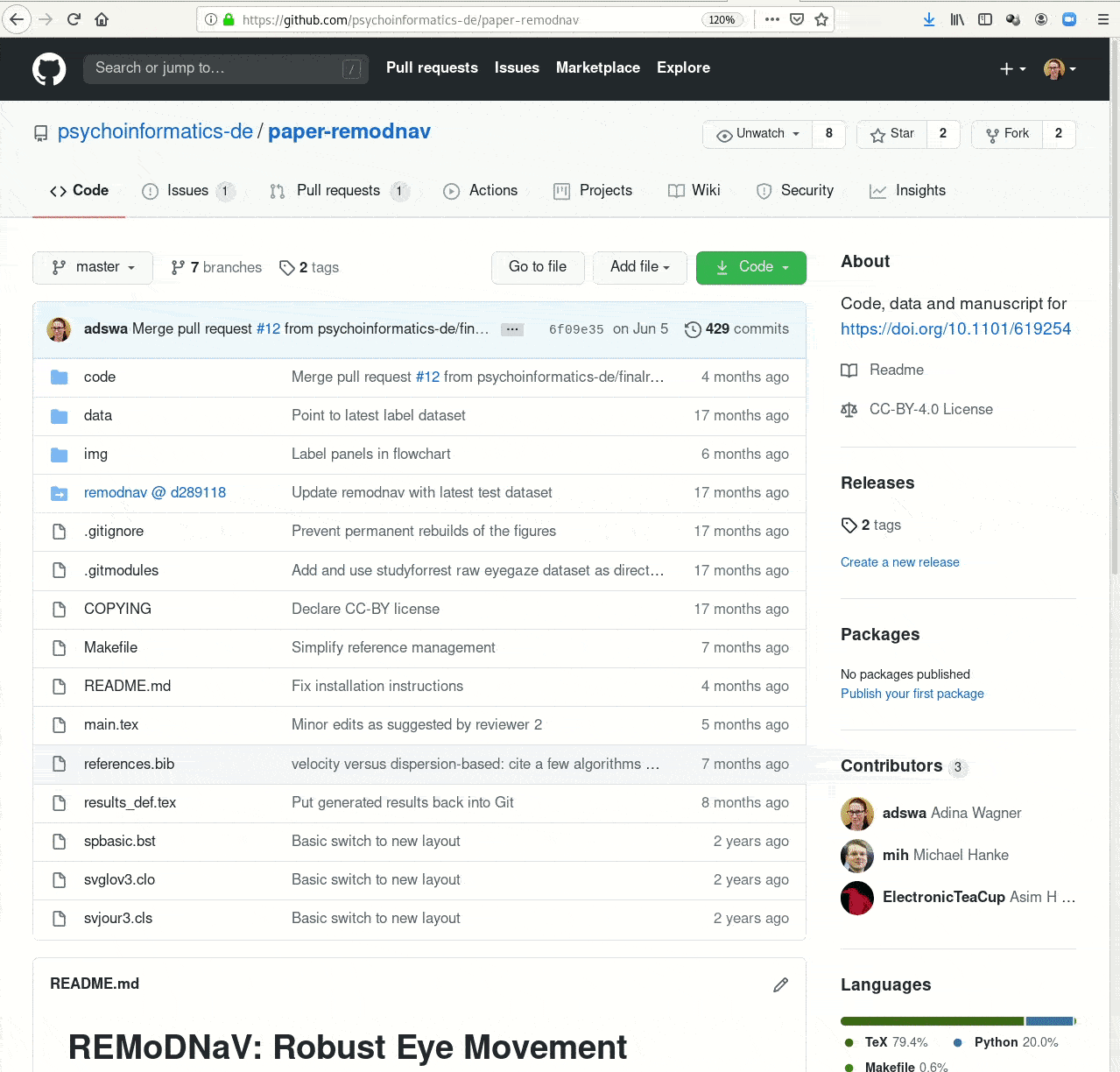
Examples of what DataLad can be used for:
- Creating and sharing reproducible, open science: Sharing data, software, code, and provenance
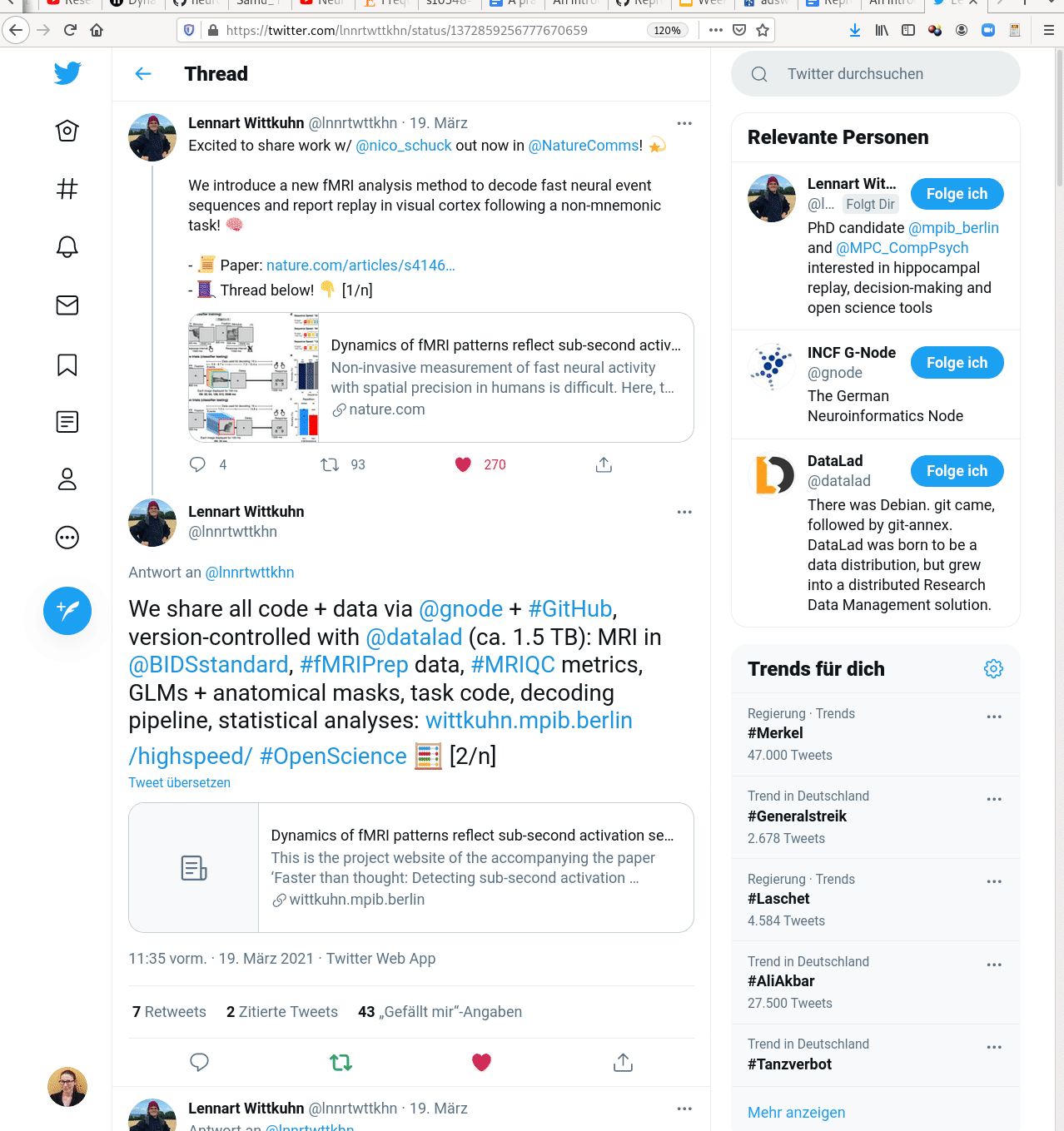
Examples of what DataLad can be used for:
- Central data management and archival system
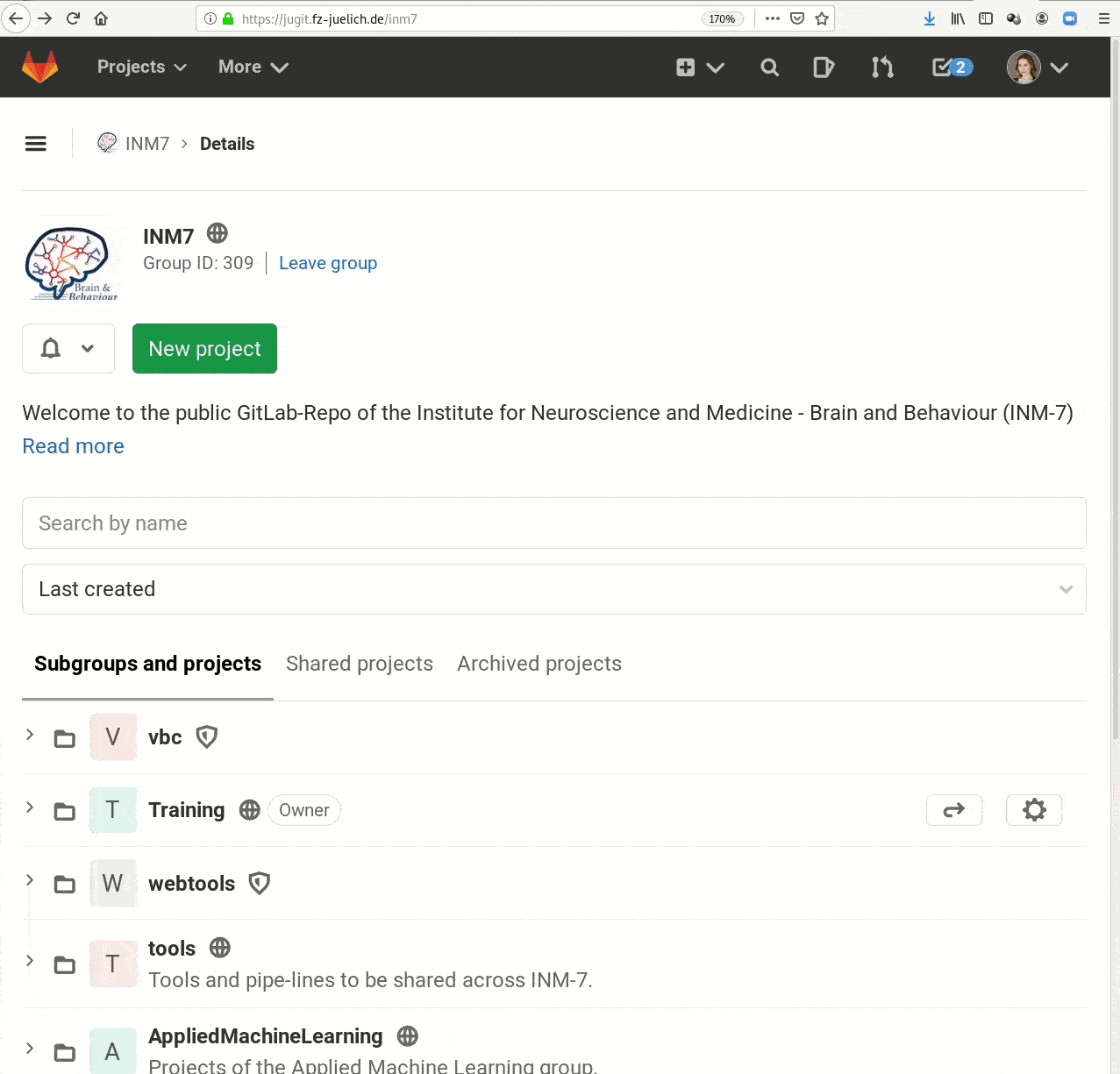
Examples of what DataLad can be used for:
- Scalable computing framework for reproducible science

... and many more!
Let's fire up a terminal and get started with the Basics